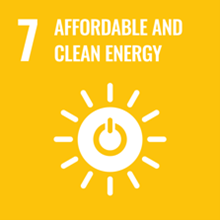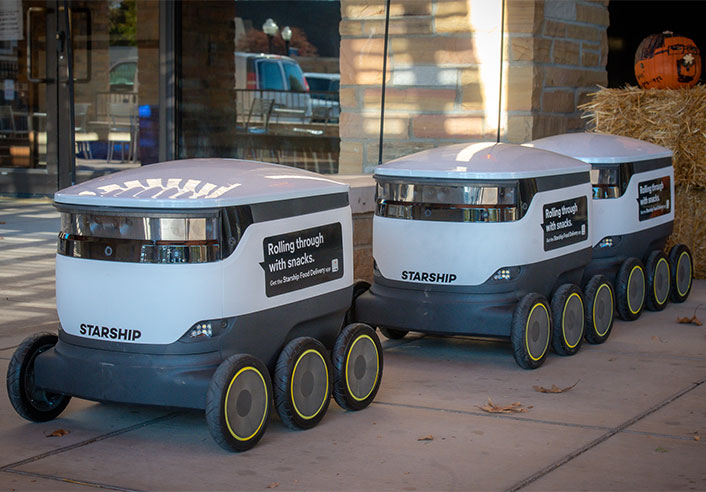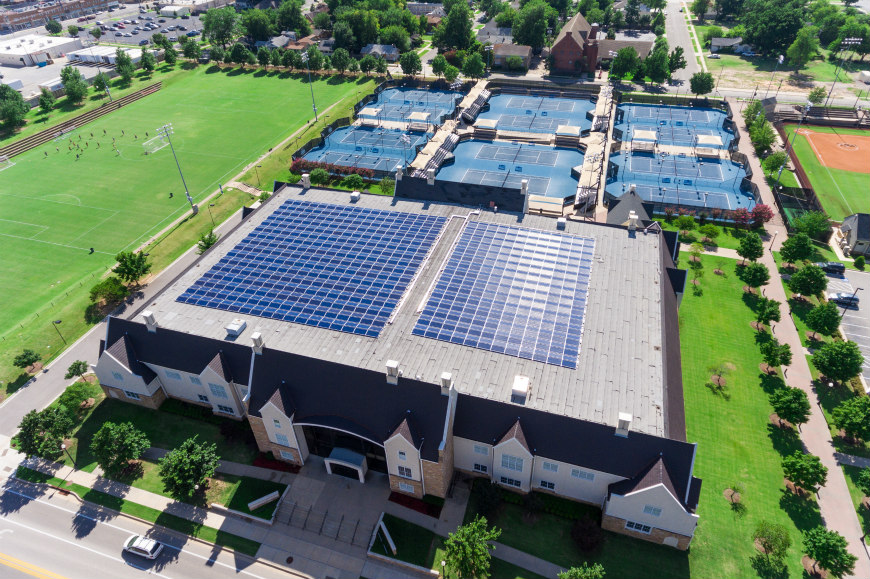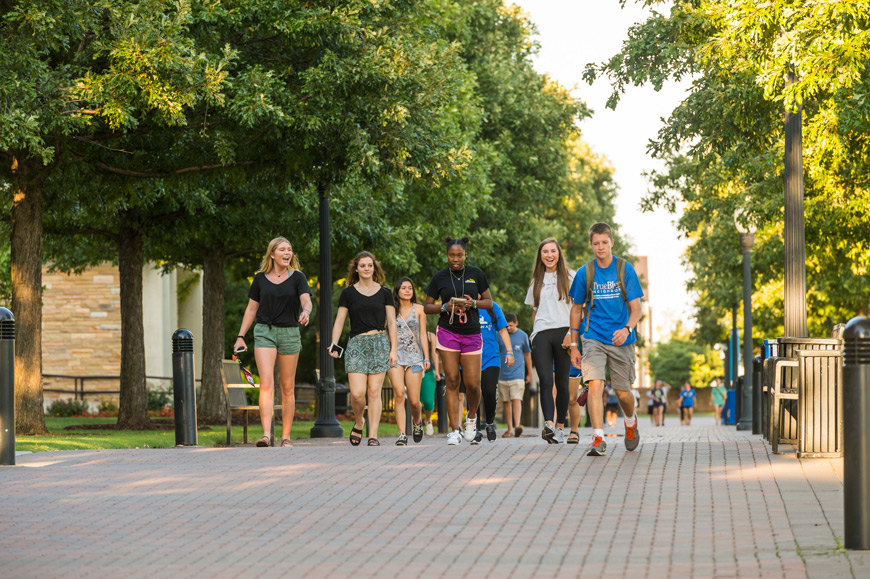
Ensuring access to reliable, affordable, and clean energy to improve living standards.
This goal envisions a world where everyone has access to clean, reliable, and sustainable energy sources that support economic growth, improve living conditions, and protect the environment. Achieving this goal is critical not only for reducing poverty and inequality but also for addressing climate change and promoting a more sustainable and prosperous future for all.
The University of Tulsa contributes to Sustainable Development Goal 7 in various ways:
- Energy Efficiency: Implement energy-efficient practices and technologies across its campus infrastructure. This includes upgrading lighting, heating, cooling, and ventilation systems to reduce energy consumption.
- Renewable Energy: Invest in renewable energy sources, such as solar panels or wind turbines, to generate clean energy on campus. These installations can reduce carbon emissions and serve as educational tools for students studying renewable energy technologies.
- Sustainability Initiatives: Implement sustainability initiatives that promote energy conservation and awareness among students and staff. These initiatives can include energy-saving campaigns, educational programs, and sustainability competitions.


- Research and Innovation: Conduct research and innovation projects related to clean energy technologies and energy efficiency. TU can also collaborate with industry partners to develop and test new energy solutions.
- Curriculum Integration: Integrate clean energy and sustainability topics into the curriculum, offering courses and programs related to renewable energy, energy efficiency, and sustainable energy policies.
- Partnerships: Collaborate with local utilities, government agencies, and energy companies to explore opportunities for joint projects, such as energy-efficient retrofits or the development of renewable energy projects.
- Sustainable Practices: Promote energy-saving behaviors among the campus community, including turning off lights when not in use, reducing heating and cooling waste, and minimizing energy consumption in laboratories and research facilities.
- Energy Audits: Conduct energy audits of campus buildings to identify opportunities for energy savings and efficiency improvements.
- Student Engagement: Engage students in clean energy and sustainability projects, offering research opportunities and internships related to clean energy technologies and policies.
TU contributes to SDG 7 by reducing its carbon footprint, promoting clean energy adoption, and fostering a culture of sustainability and energy efficiency on campus. Additionally, these efforts can serve as valuable learning experiences for students and contribute to the broader transition toward a more sustainable and clean energy future.

SDG 7 Targets
Implement policies/projects that minimize or reduce overall energy consumption during and after business hours
Offer programs/events for the local community to learn about the importance of energy efficiency and clean energy
Identify and reduce the areas where energy waste is highest
Research
50+
Total Scholars
1,398
Total Publications
Links
Files & Policies
Processes
News
- Stuart Price (J.D. ’82) moved to Tulsa in the late 1970s to attend The University of Tulsa’s College of Law, discovering after graduation that his calling was actually as an […]
- Dear UTulsa community, As we begin a vibrant fall semester, I am pleased to share several pieces of good news about the department’s faculty. Associate Professor Laura Ford has been […]
- At The University of Tulsa, innovation is taking a step forward with the development of an advanced solar energy conversion system that combines two cutting-edge technologies: concentrated solar power (CSP) […]
- University of Tulsa mechanical engineering alumnus Tim Latimer (BS ’12) was dealing with drilling equipment that kept breaking from the high temperatures deep underground. “I had never even heard of […]
- Growing up in New Mexico where her family operates an oil and gas business, Ileana Braddock was surrounded by people whose livelihoods were impacted by the booms and busts of […]
- This opinion column was written by Andrew Morin and was first published in the Tulsa World. Morin is a research assistant professor in the School of Cyber Studies at The […]
- On June 26, The University of Tulsa (UTulsa) welcomed six representatives from China University of Petroleum (CUP)-Beijing to its campus led by Vice President Guangqing Zhang. The visit marked a […]
- Eleven students from The University of Tulsa are participating in the Future Green Energy Leaders Summer Program hosted by China University of Petroleum, Beijing (CUPB). This is the first time […]
- The University of Tulsa’s (UTulsa) Mohan Kelkar, Ph.D., Chair of Petroleum Engineering, recently traveled to the Bahrain Centre for Strategic, International and Energy Studies to speak on energy transition. The […]
- The renewable energy sector is experiencing remarkable growth, with solar and wind power at the forefront. Helping to ensure these technologies can achieve their maximum potential is Assistant Professor of […]